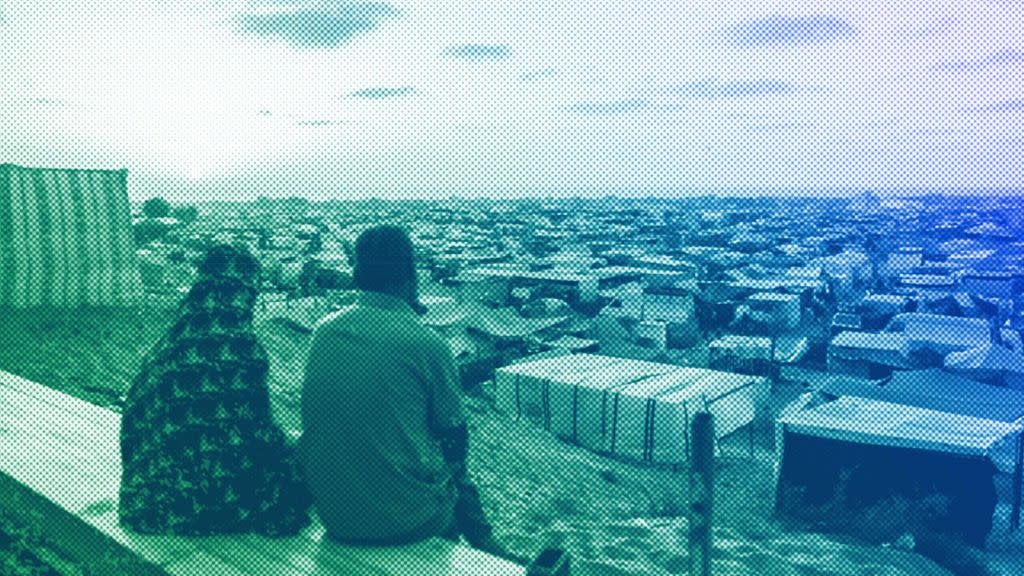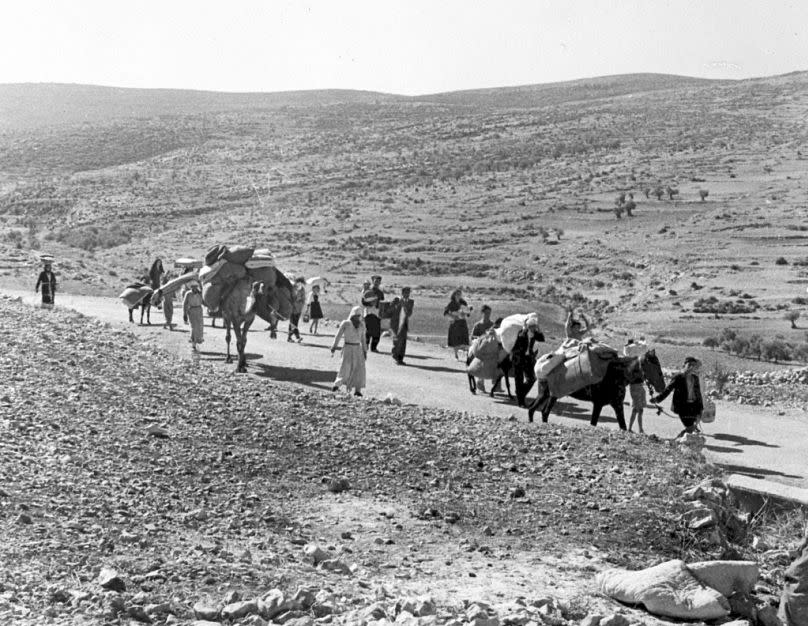Is World Refugee Day in 2024 merely symbolic or about real human rights?

For seven decades, Palestinian children have been born and raised as refugees.
While many 18-year-olds in Europe are finishing their secondary studies and heading off to university, 18-year-olds in Gaza have lived through six different wars (2008-2009, 2012, 2014, 2021, 2022, and 2023).
Since October, schools in Gaza have been used as shelters to house the displaced, and even many of those have been targeted by bombardment. In the face of extremely limited humanitarian access to Gaza over the past eight months, community-led groups, NGOs, and humanitarian organizations are persevering in providing education to young people despite the challenging circumstances.
However, due to the scarcity of supplies, efforts are hampered. For older children, those on the brink of adulthood, there will be no final exams this summer and no school graduations.
Every single one of Gaza’s universities has been destroyed, and prospects for higher education in Gaza no longer exist.
Palestinian refugee woes goes way back
Each year, World Refugee Day on 20 June prompts global reflection on the plight of refugees. It is promoted as a celebration of resilience and an opportunity to urge policymakers to act.
World Refugee Day began in 2001 to commemorate the adoption of the 1951 Convention relating to the Status of Refugees, outlining rights and protections for refugees.
However, Palestinian refugees' displacement predates this convention. For over 75 years, Palestinian children have grown up as refugees, and in the last 8 months, more than 1.7 million Palestinians have again been displaced from their homes in Gaza.
Starting in 1946 and culminating in 1948, hundreds of thousands of Palestinians were forcefully expelled from their homes during the establishment of the state of Israel, seeking refuge in other parts of Palestine, as well as in Jordan, Syria, Lebanon, Egypt, and beyond.

In 1948, UN Resolution 194 granted Palestinians three fundamental rights: the choice to return to their original homes, restitution, and compensation for their losses.
Despite the right of return being supported by eight branches of international law and Israel’s UN membership being contingent upon adhering to Resolution 194, none of these fundamental rights have been upheld.
Timeline: Which countries have recognised Palestinian state? When and why?
Gazans search ruins of Jabaliya refugee camp for belongings after IDF withdrawal
Instead, the Palestinian refugee population has only increased, and today, nearly 40% of that population are children. These families and individuals have been displaced multiple times, have limited healthcare, education, economic opportunities, freedom of movement, and lack access to fundamental human rights.
A profound disconnect between sincerity and agenda
The situation for Palestinians in Gaza rightly has the world’s attention today, but for the past 17 years, a blockade by Israel and Egypt has caused massive destruction to civilian life and infrastructure in Gaza.
Caregivers have endlessly struggled to provide for the basic needs of their families while also being unable to protect them from severe injury or death. Some young adults, as a result, have decided not to have children at all. All of this was prior to October last year.
Decades of research have meticulously documented the privation, resilience and resistance of displaced Palestinian children. Nobody can look back and say they did not know what was happening to these generations of young people growing up in forced displacement.
I'll never forget the kindness of strangers when I fled conflict. Now I'm paying it forward
Axing the Oslo Accords killed the narrative, not just the process
Despite clear evidence of their hardships, Europe's response to the refugee crisis is a paradox of solidarity and silence.
Campuses across Europe surge with support for refugees, yet many European governments, ostensibly backing World Refugee Day, actively silence advocacy for Palestinian refugees.
This goes beyond mere inaction, revealing a pattern of suppressing critical solidarity movements that challenge the ongoing crisis in Gaza. Such discrepancies expose a profound disconnect between public sentiment and political agendas, casting serious doubt on the sincerity and effectiveness of Europe’s commitment to World Refugee Day.
Commemorative days have their place, but only if they go hand in hand with concrete, evidence-based decision-making to find just and lasting solutions for displaced families and communities that allow them to return to their homes and live in dignity.
When Palestinian children can sing, dance, and celebrate, not because war has ended but because they scored the winning goal, aced their math test, got a new pair of shoes, or just because it's another day, and that’s what kids do by default, then we can in good conscience make proclamations of justice, peace, and empathy on World Refugee Day.
Luigi Achilli is part-time Assistant Professor, Stephanie Acker is Research Associate, and Caitlin Procter is part-time Professor at the Robert Schuman Centre of the European University Institute in Florence.
At Euronews, we believe all views matter. Contact us at view@euronews.com to send pitches or submissions and be part of the conversation.

 Yahoo News
Yahoo News 
